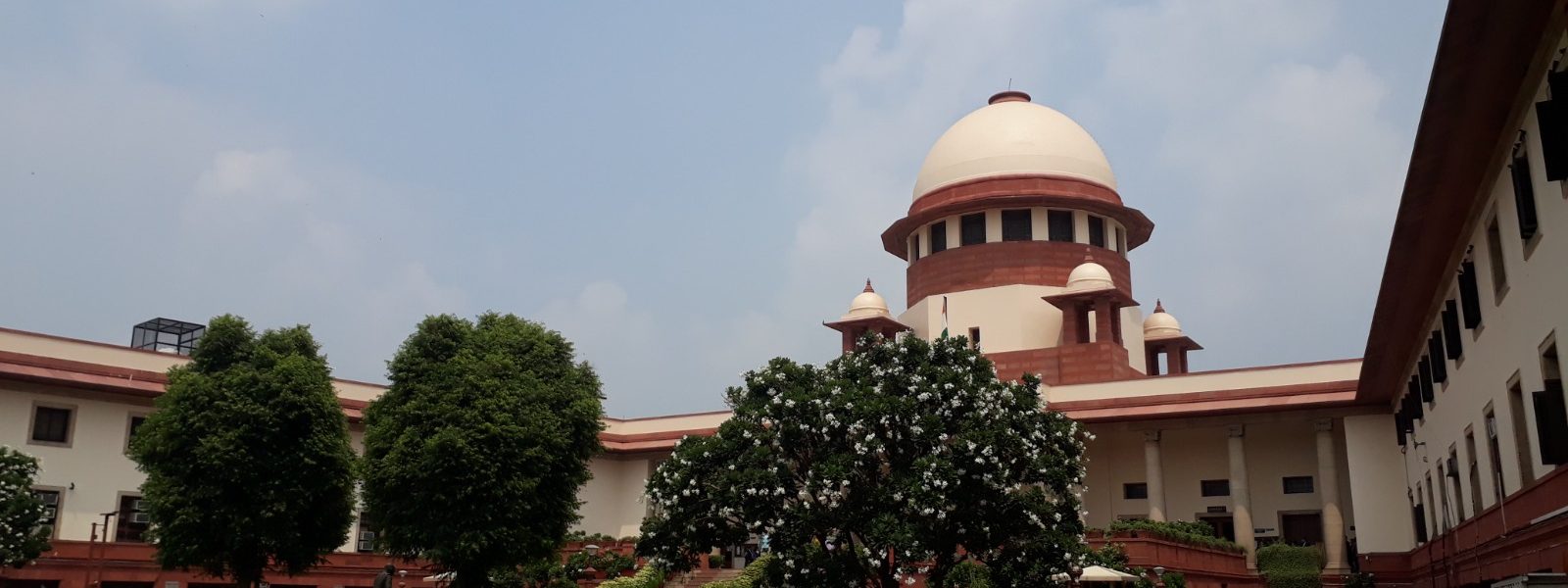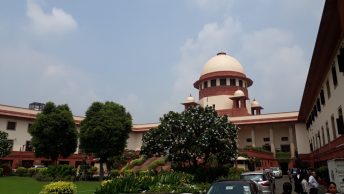Introduction
The panel on Adjudication of Socio-Economic Rights in the SAARC (South Asian Association for Regional Cooperation) Countries discussed the unique challenges and opportunities in recognizing and enforcing socio-economic rights. The role of the judiciary in safeguarding and promoting such rights is extremely important as these countries grapple with diverse socio-economic realities and developmental trajectories. The panel consisted of Justice S. Ravindra Bhat (Judge, Supreme Court of India), Justice Syed Mansoor Ali Shah (Judge, Supreme Court of Pakistan), and Niran Ankettel (Advocate, Sri Lanka). This panel illuminated key themes and trends regarding the interpretation, enforcement, and intersectionality of socio-economic rights across these countries.
The jurisprudence in these countries historically leans towards favouring civil-political rights rather than socio-economic rights in the discussions surrounding human rights. The legal position of such rights and the subsequent duties held by the administrative state to realize them are highly debated.
The discussion began by acknowledging the evolving significance of socio-economic rights within SAARC regions. Historically, these rights were considered aspirational, but now there is a growing recognition of their importance, especially due to the structural challenges faced by the SAARC nations today. Despite initial obstacles, the rights have now started to find their place within these countries’ judicial discourse and legislative frameworks. The esteemed panelists of this session address these issues along with many others, reflecting on their experiences as professionals who have worked in their country’s legal system and actively engaged with such concerns.
Speaker 1: Justice Syed Mansoor Ali Shah (Judge, Supreme Court of Pakistan)
Justice Syed Mansoor Ali Shah provided insights into the Pakistani jurisprudence around socio-economic rights. He emphasized the integral role played by these rights in upholding human dignity and ensuring equal access to justice. He also explained how Pakistan’s courts have protected and promoted socio-economic rights by discussing landmark cases on gender inequality, workplace harassment, disability accommodations, inheritance rights, and the right to vote.
Justice Shah emphasized that the judiciary’s role in promoting equality of status and opportunity extends to all individuals, irrespective of their background or identity. He observed how the court’s view on socio-economic rights as fundamental human rights has now transitioned towards a more inclusive and gender-sensitive one, which is especially highlighted in cases where they addressed gender inequality. Notable examples of this include the abolition of the two-finger test in rape cases declaring it a blatant violation of a woman’s dignity and honour, and the recognition of workplace harassment. While demographically, women make up fifty percent of the population in Pakistan, this has not translated into the workplace dynamic. It is expected that recent measures taken by the country will help its citizens take the first steps against gender biases and patriarchy. He also analyzed the intersectionality of socio-economic rights with other forms of discrimination, such as those based on disability and minority status.
He further mentioned that the offences of sexual harassment should be inclusive of all genders, including transgender people. In the spirit of inclusion, he also noted how the usage of terms such as “mentally retarded” or “handicapped” had been prohibited and removed from the statute books by the Supreme Court, a point that Dr. Vasanthi, a professor at NALSAR and the moderator for this session pointed out as a development within the Indian jurisprudence as well. Justice Shah concluded by examining the issues involving climate justice in Pakistan, given that despite not being a heavy emitter, Pakistan still faces major concerns regarding climate change, which is evident from the heavy flooding in recent years.
Speaker 2: Adv. Niran Ankettel (Attorney, Colombo, Sri Lanka)
Adv. Niran Ankettel, an Attorney at Law from Colombo, Sri Lanka, offered insights into the interpretation and enforcement of socio-economic rights in Sri Lanka, shaped by the country’s history, while also drawing parallels with the development in India. He provided a critical perspective on the justiciability of socio-economic rights in Sri Lanka. He expressed scepticism about the effectiveness of making these rights justiciable, arguing that it may result in a judicial overreach and a shift from the concept of deference to the executive branch.
Mr. Ankettel expresses concern about the recent shift in Sri Lanka’s judicial approach, particularly regarding environmental issues and public law rights. This shift, he claims, is due to the withdrawal of courts from adjudicating on socio-economic issues since the 2010s. He specifically noted that earlier the court allotted specific days of the week to address such issues. This change in the court’s approach to public issues is considered an aftermath of the economic crises faced by the country, along with the growing role played by globalization and privatization. The impact of these events has led to a shift towards a more public law-centric perspective by the courts.
Despite the judiciary’s attempts to address these issues, he acknowledged that there has been minimal success in terms of overall social and economic development. However, he positively notes that despite these challenges, there has been a growing awareness of the importance of socio-economic rights within the Sri Lanakan legal landscape.
The need to reevaluate Sri Lanka’s legal framework is highlighted to ensure adequate protection of socio-economic rights in the country. He raises questions regarding the feasibility of judicial enforcement in light of the systemic inequalities and challenges in the legal system and the public. One of the main challenges in Sri Lanka is the ethnic tensions faced in the northeastern part of the country, as well as the issues relating to the executive’s powers and the electoral system.
Mr. Ankettel expressed doubts regarding the inclusion of these rights within the constitution where such rights have not yet yielded the desired outcome. He believes that the accessibility of courts unequally benefits big corporations rather than the people who could actually benefit from the guarantee of these rights.
Mr. Ankettel suggests that future constitutional reforms should carefully consider the balance of powers between different branches of the government to avoid repeating past mistakes and ensure that the public receives the benefits that come from the enforcement of socio-economic rights. Despite these concerns, he remains optimistic about the potential for positive change, particularly through collaborative efforts between the judiciary, civil society, and policymakers.
Speaker 3: Justice S. Ravindra Bhat (Former Judge Supreme Court of India, Chair of Comparative Constitutional Law Studies at SAARC Law Centre, NALSAR)
Justice S. Ravindra Bhat, former judge of the Supreme Court of India and Chair of Comparative Constitutional Law Studies at SAARC Law Centre, NALSAR, draws from his extensive experience to provide nuanced insights into the adjudication of socio-economic rights in India. He reflects on the historical evolution of socio-economic rights within India’s legal framework.
He particularly focused on the role of the judiciary in interpreting and enforcing these rights. He begins by acknowledging and appreciating the diverse viewpoints presented by the speakers from Pakistan and Sri Lanka. He emphasized that despite the significant progress made in the enforcement of socio-economic rights in India, there exists a need to address certain undone aspects of socio-economic rights within India’s legal framework.
The historical context surrounding socio-economic rights adjudication is discussed here, focusing on how the earlier distinctions between fundamental rights and other rights have evolved over time. He acknowledged the past challenges faced by this adjudication, including compartmentalization of rights and limitations on judicial activism.
Justice Bhat shared his experiences from the early years of his legal practice, where courts adopted a benevolent construction approach towards socio-economic rights. However, he observed that there has been a shift in its jurisprudence after the 1990s, with the changes in labor and employment law and the destruction of unions.
The challenge in actualizing these socio-economic rights, especially in urban and rural areas, is also discussed. He emphasized the judiciary’s role in promoting socio-economic rights as integral to upholding human dignity and welfare. He discussed the judiciary’s engagement with issues such as the right to livelihood, education, and food, emphasizing the importance of progressive realization and proactive judicial intervention.
Justice Bhat referred to recent Supreme Court judgments, including those where international judgments surrounding the topic were considered, signalling a broader approach to restorative justice. The significance of the progressive realization of social justice was emphasized, especially considering the rising security concerns and climate change.
Comparative Constitutional law plays a crucial role in analyzing socio-economic rights, keeping in mind the state’s capacity and constitutional aspirations. He discussed the enabling legal framework and landmark judgments in South Africa, delineating the judiciary’s limited role in socio-economic rights enforcement.
He stated that India is not far behind in this regard. The early 50s and 60s saw massive agrarian reform, and while these reforms worked in some places, they could have been more effective in others.
The interpretation of statutes by courts has to change to help increase the effectiveness of these reforms. Justice Bhat cited the Vishaka and PUCL judgments on the right to food to emphasize the importance of both aspirational rights and the enforcement of civil and political rights. He calls for a holistic approach when it comes to adjudicating on such rights, emphasizing the judiciary’s responsibility to balance competing interests and promote substantive equality.
Moreover, Justice Bhat discussed the judiciary’s role in addressing issues like bonded labor through creative interpretations of statute law and the establishment of benchmarks for socio-economic rights realization. He emphasized the judiciary’s capacity to create space for marginalized issues and devise enforcement mechanisms, contributing to the broader socio-economic rights agenda.
The adjudication of socio-economic rights in SAARC countries represents a complex yet vital endeavor in promoting social justice and equality. This report highlights the multifaceted nature of socio-economic rights adjudication through a comparative analysis of judicial perspectives from Pakistan, Sri Lanka, and India from speakers extensively involved in the adjudication of these rights. It underscores the importance of a holistic approach towards realizing these rights. As SAARC nations continue their journey towards socio-economic development, the judiciary’s role in upholding and enforcing these rights remains indispensable.
Through such discussions and sharing experiences and insights on the topic, the panelists agree that common ground can be found for ensuring that constitutional socio-economic protections effectively translate into enhanced living standards. Despite significant progress, systemic inequalities, limited access to justice, and the interplay between socio-economic and civil-political rights continue to pose challenges. Addressing these challenges requires collaborative efforts between the judiciary, civil society, and policymakers to ensure effective protection and enforcement of socio-economic rights.
As the SAARC countries navigate complex socio-economic dynamics, the judiciary’s role as a guardian of rights and enabler of social change becomes increasingly pivotal. Justice Bhat, Justice Shah, and Ankettel all emphasized the need for increasing the judiciary’s capacity to influence legislative and executive action to promote substantive equality and social welfare. It is important to note that the judiciary’s role extends beyond traditional adjudication to proactive policy framing and societal transformation.
In conclusion, while the adjudication of socio-economic rights in SAARC countries presents formidable challenges, it also offers significant opportunities for advancing social justice and equality. By embracing a rights-based approach, fostering dialogue and collaboration, and upholding the principles of human dignity and welfare, SAARC nations can pave the way toward a more inclusive and equitable society for all.
Written by: Ishita Sen
Edited by: Kartheek Vegesana


